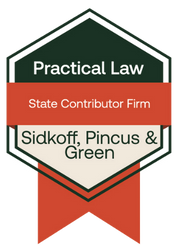Best-Interest Contract Provision from DOL Fiduciary Rule

The Best Interest Contract, sometimes referred to as BIC, is part of the Labor Department’s fiduciary rule. The Trump Administration has mandated a request for information to guide the Department of Labor (DOL) in its review of the rule to either change it, or eliminate it all together. Last week, in a lawsuit over the regulation, the DOL filed documents stating that it would be seeking an 18-month delay in the implementation of the remaining parts of the fiduciary rule. This 18-month waiting period will give federal agencies, such as the Securities and Exchange Commission (“SEC”), a chance to weigh in.
What is the BIC provision?
A BIC is a legally binding agreement that allows stockbrokers to earn variable compensation on products that they sell to retirement investors so long as they act in the investors’ best interests. The BIC provision allows investors to file class-action lawsuits over violations of this rule. Lobbyists want to have the rule modified or stricken.
The 18-month delay period will allow agencies, such as the SEC, plenty of time to undo the contract. Critics of the rule say that it is too complicated and that it raises liability costs. At this point, the only thing that is clear is that agencies will continue working on drafting the rule for at least a few years. The SEC has already put out a request for comment on fiduciary duty. The DOL’s request for information also indicates that lawmakers may add specific exemptions to the rule for the sale of certain retirement investment products, such as clean shares.
By delaying the rule’s finalization that the DOL wants to collaborate with the SEC, Finra, and state insurance regulators, it is a very difficult and complex issue. According to many commentators, there is no end in sight. This can be extremely frustrating to those who work in compliance. It is impossible to advise clients how to comply with regulations when they are hanging in limbo.
Philadelphia FINRA Lawyers at Sidkoff, Pincus & Green P.C. Represent Clients in Class Action Lawsuits
The Philadelphia FINRA lawyers at Sidkoff, Pincus & Green P.C. stay up to date on the latest changes in state and federal business law so that we can advise our clients with an eye to the future. Our trial lawyers represent clients in all types of FINRA lawsuits. To learn more about how we can help, call us today at 215-574-0600 or contact us online today.



















